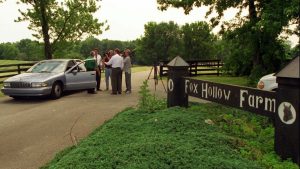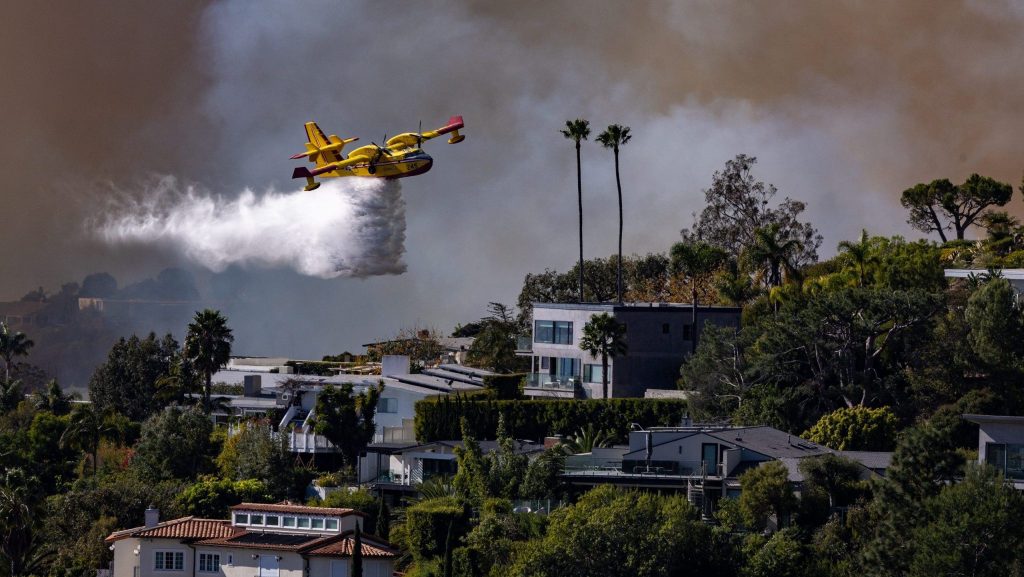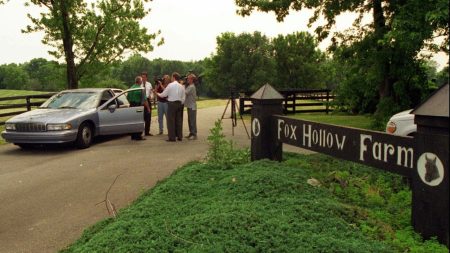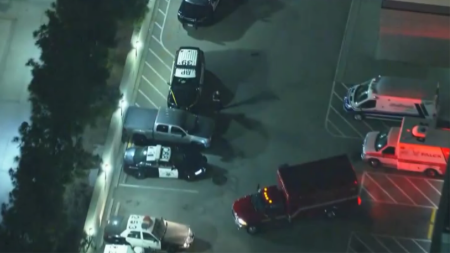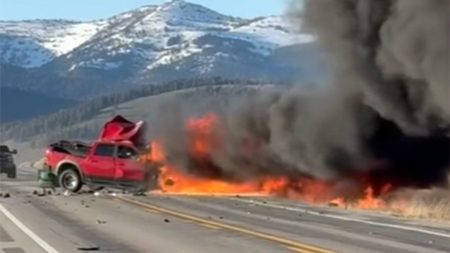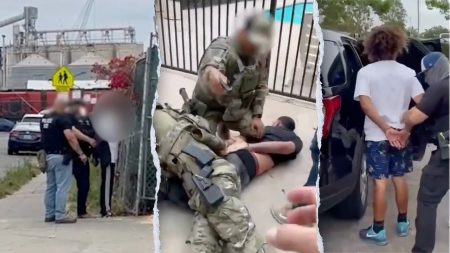The ongoing battle against the devastating wildfires sweeping across Southern California encountered a significant setback when a civilian drone collided with a firefighting aircraft, jeopardizing crucial aerial firefighting efforts. The incident, currently under investigation by federal and state authorities, involved a Quebec 1 Super Scooper, one of only two such aircraft operating in the region at the time. The Super Scooper, brought in from Canada to assist with the firefighting operations, was engaged in water drops over the Palisades Fire, one of the largest and most destructive of the numerous wildfires raging in the area. The drone strike, which occurred mid-flight, went unnoticed by the pilots until the aircraft landed at Van Nuys Airport. Upon inspection, maintenance personnel discovered a “fist-sized” hole in the wing’s leading edge, effectively grounding the aircraft and significantly impacting firefighting capabilities.
This incident underscores the critical danger posed by unauthorized drone flights near wildfire zones. The Federal Aviation Administration (FAA) has emphasized that such interference with firefighting operations is a federal crime, punishable by hefty fines and potential imprisonment. The agency reiterated that it had not authorized any unaffiliated individuals to operate drones within the designated temporary flight restrictions (TFRs) established around the fire zones. The presence of unauthorized drones creates substantial risks for low-flying firefighting aircraft, potentially causing distractions or collisions that could lead to catastrophic consequences. In this instance, the drone strike not only damaged the Super Scooper but also took it out of service for several days, hindering critical efforts to contain the rapidly spreading blaze.
The Palisades Fire, the largest among the numerous conflagrations ravaging Southern California, has already consumed over 20,000 acres and was only minimally contained at the time of the drone incident. The fire’s relentless advance forced the evacuation of over 180,000 residents earlier in the week, though some orders have since been lifted. The cumulative impact of the multiple wildfires across the state has been devastating, resulting in at least ten fatalities and the destruction of over 10,000 homes and businesses. The temporary loss of the Super Scooper, a crucial asset in aerial firefighting, further exacerbated the challenges faced by firefighters battling the infernos.
The drone strike highlights the growing concern over the potential for civilian drones to interfere with emergency response efforts. The FAA’s strict regulations regarding drone operations in restricted airspace are designed to prevent such incidents. The agency has emphasized the importance of public awareness and compliance with these regulations to protect both firefighters and the communities they serve. Unauthorized drone flights not only pose a direct threat to aircraft but also divert crucial resources away from firefighting efforts, as authorities must address the drone issue and ensure the safety of airspace.
The swift response from both federal and state authorities underscores the seriousness of the incident. The FAA is conducting a thorough investigation to identify the drone operator and determine the appropriate legal action. Concurrently, California fire officials are working to expedite the repair of the Super Scooper, aiming to have it back in service as quickly as possible to bolster the ongoing firefighting operations. The incident serves as a stark reminder of the need for responsible drone operation and adherence to FAA regulations, particularly in critical situations like wildfire emergencies.
The drone’s collision with the Super Scooper, while unfortunate, provides a valuable opportunity to reinforce the message about responsible drone usage and the potential consequences of disregarding established regulations. Public education and outreach are vital in ensuring that drone operators understand the potential risks associated with flying near wildfires or other emergency situations. The incident also highlights the importance of ongoing collaboration between federal and state agencies to enforce regulations and address the growing challenges posed by the increasing prevalence of drones in the airspace. Ultimately, responsible drone operation is paramount to ensuring the safety of both firefighters and the communities they are working tirelessly to protect.
